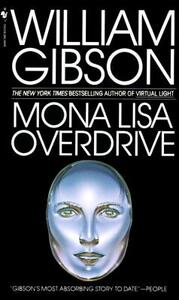You need to sign in or sign up before continuing.
Take a photo of a barcode or cover
adventurous
mysterious
tense
fast-paced
Plot or Character Driven:
A mix
Strong character development:
Complicated
Loveable characters:
Complicated
Diverse cast of characters:
Complicated
Flaws of characters a main focus:
Yes
Moderate: Addiction, Drug abuse, Drug use, Violence, Kidnapping
Minor: Death, Gun violence, Blood, Medical content, Alcohol, Injury/Injury detail
adventurous
dark
emotional
funny
hopeful
lighthearted
mysterious
reflective
sad
fast-paced
Plot or Character Driven:
A mix
Strong character development:
Complicated
Loveable characters:
Yes
Diverse cast of characters:
No
Flaws of characters a main focus:
Complicated
adventurous
dark
mysterious
medium-paced
Plot or Character Driven:
A mix
Strong character development:
Complicated
Loveable characters:
Complicated
Diverse cast of characters:
Complicated
Flaws of characters a main focus:
Yes
It was a nice ending to the series. Not as good as the first two books though it was nice to revisit some characters.
The Sprawl trilogy is truly a wild ride, and this is a hell of a closing entry; it has some of my favorite passages in the series, and with it drawing stylistically, structurally and narratively from both Neuromancer and Count Zero, it retroactively makes them feel more like part of a sequence than two stories sharing the same setting. I like the characters here, both new and returning, especially Kumiko and Slick, both of whom turned out to be invaluable since the feeling of not knowing what's going on is at an all time high here and them being just as confused as I was through most of the novel was the anchor I needed to keep me going.
I imagine not many people are fans of the lack of agency the characters have in this (and the previous book, for that matter); unlike in Neuromancer I feel like every character who knows what's going on is not a PoV character (I'll give Angie an A for effort but she doesn't really get there), and we only get glimpses of them as they jump from narrative thread to thread, and instead the characters we do follow feel like privileged spectators who happened to stumble upon the main plot or become useful to the main players in ways they don't fully understand. That said, I do like the whole idea of (mostly) normal people brushing against or being instrumentalized by forces outside of their understanding, and that's where the novel shines the most for me: the manifestation of these cyber-entities and the spaces they reside in (including cyberspace/the matrix itself) is depicted in a grandiose, really evocative ways that massage my brain in just the right ways.
Anyway, great book.
I imagine not many people are fans of the lack of agency the characters have in this (and the previous book, for that matter); unlike in Neuromancer I feel like every character who knows what's going on is not a PoV character (I'll give Angie an A for effort but she doesn't really get there), and we only get glimpses of them as they jump from narrative thread to thread, and instead the characters we do follow feel like privileged spectators who happened to stumble upon the main plot or become useful to the main players in ways they don't fully understand. That said, I do like the whole idea of (mostly) normal people brushing against or being instrumentalized by forces outside of their understanding, and that's where the novel shines the most for me: the manifestation of these cyber-entities and the spaces they reside in (including cyberspace/the matrix itself) is depicted in a grandiose, really evocative ways that massage my brain in just the right ways.
Anyway, great book.
adventurous
dark
mysterious
fast-paced
Plot or Character Driven:
A mix
Strong character development:
Yes
Loveable characters:
Yes
Diverse cast of characters:
Yes
Flaws of characters a main focus:
Yes
adventurous
challenging
dark
mysterious
tense
medium-paced
Plot or Character Driven:
A mix
Strong character development:
No
Loveable characters:
Complicated
Diverse cast of characters:
Yes
Flaws of characters a main focus:
Yes
adventurous
dark
emotional
mysterious
reflective
sad
tense
medium-paced
Plot or Character Driven:
A mix
Strong character development:
Yes
Loveable characters:
Complicated
medium-paced
Plot or Character Driven:
Plot
Strong character development:
Complicated
Loveable characters:
Complicated
Diverse cast of characters:
Yes
Flaws of characters a main focus:
Yes
adventurous
challenging
dark
medium-paced
Plot or Character Driven:
A mix
Loveable characters:
Complicated
Diverse cast of characters:
Yes





